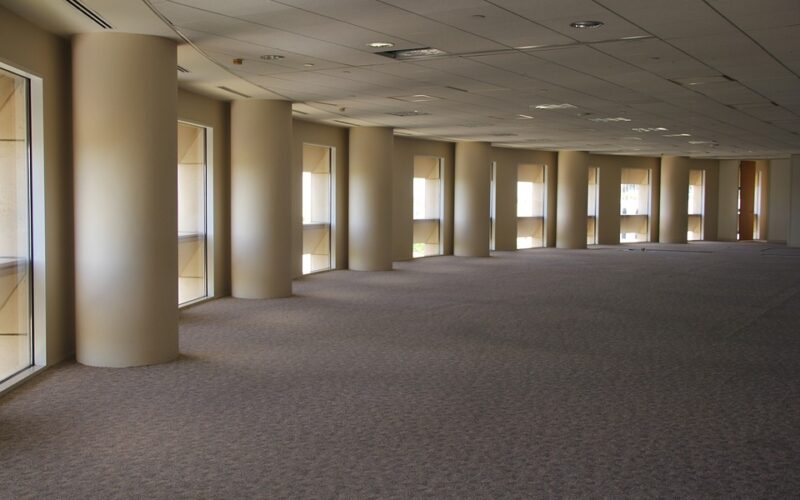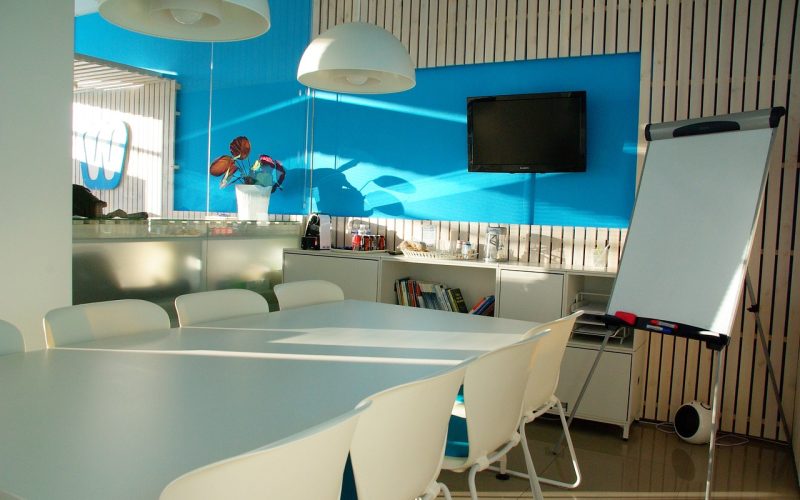In the fast-paced world of technology, constant innovation and expansion are crucial for success. Some of the world's leading tech giants, including Apple, Meta, Alphabet, and Amazon, are investing heavily in constructing their own office buildings to accommodate growing teams and foster innovation. This trend reflects the increasing demand for space to support the rapid development of new products and services, while also showcasing their ambitious architectural visions.
Apple's focus on sustainability and design
Apple is renowned for its cutting-edge technology and sleek product designs, so it comes as no surprise that the company has taken the same approach to its office buildings. Apple Park, the company's headquarters in Cupertino, California, is a testament to this vision. Covering a massive 175 acres, the circular building is an architectural marvel designed by Norman Foster's firm. Apple Park is not only visually stunning but also focuses on sustainability. The building is powered by 100% renewable energy and features one of the largest rooftop solar installations in the world.
By investing in such innovative office spaces, Apple aims to create an environment that fosters creativity and collaboration among its employees. The campus provides numerous amenities, including a state-of-the-art fitness centre, and miles of walking and cycling trails, ensuring that Apple's workforce remains healthy and inspired.
Meta's commitment to community and collaboration
Meta, formerly known as Facebook, is another tech giant investing in its own office spaces to accommodate its expansion. The company's headquarters, located in Menlo Park, California, have undergone significant development in recent years. Designed by renowned architect Frank Gehry, the main building, known as MPK21, is a sprawling 525,000-square-foot space that houses over 2,800 employees.
Meta's office design emphasises open spaces and interconnected environments, fostering a sense of community and collaboration among its employees. The building also includes a 3.6-acre rooftop garden and a 2,000-seat event space, demonstrating Meta's commitment to providing a flexible and dynamic work environment. This focus on collaboration and community reflects the company's mission to connect people and foster meaningful interactions through their platforms.
Alphabet's investment in innovation hubs
Alphabet, the parent company of Google, is also investing heavily in building new office spaces to accommodate its rapid growth. The company's Mountain View, California headquarters, known as the Googleplex, is constantly evolving to keep up with the demands of its expanding workforce. Alphabet is currently working on the Bay View campus, a new addition to its portfolio of innovative office spaces.
Bay View is designed to be an energy-efficient and sustainable workspace, featuring geothermal piles for heating and cooling and a vast photovoltaic array to generate renewable energy. The campus will also include flexible workspaces and collaborative areas, allowing employees to work in a variety of settings. By investing in cutting-edge office spaces, Alphabet aims to create an environment that supports innovation and collaboration, ensuring the continued success of its products and services.
Amazon's urban campuses and eco-friendly design
Amazon is another tech giant that has been expanding its office footprint to accommodate its rapid growth. The company's headquarters, located in Seattle, Washington, consist of numerous high-rise buildings that form an urban campus. Amazon's latest development, the Helix, is a striking bio-dome structure designed to promote employee well-being and sustainability.
The Helix is part of the company's broader commitment to building environmentally friendly office spaces. The structure will feature lush greenery, walking paths, and spaces for employees to relax and recharge. Amazon's investment in eco-friendly design and urban campuses reflects its dedication to creating a work environment that supports employee well-being and sustainability, while also accommodating its rapidly growing workforce.
The impact of expanding office spaces on the tech industry
The trend of tech giants building their own offices highlights the importance of creating spaces that promote innovation, collaboration, and sustainability. These companies understand that their work environments play a critical role in attracting and retaining top talent, as well as driving the development of new products and services. By investing in state-of-the-art office spaces, tech companies are positioning themselves for continued success in an increasingly competitive industry.
The expansion of office spaces by leading tech companies such as Apple, Meta, Alphabet, and Amazon demonstrates the importance of innovation and sustainability in the modern workplace. These investments not only accommodate the growing workforce but also foster creativity, collaboration, and well-being. As the tech industry continues to evolve, these companies will likely set the standard for future office design and development, paving the way for a more connected and sustainable world.
























